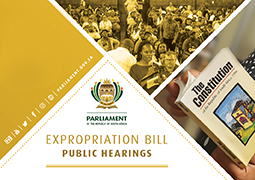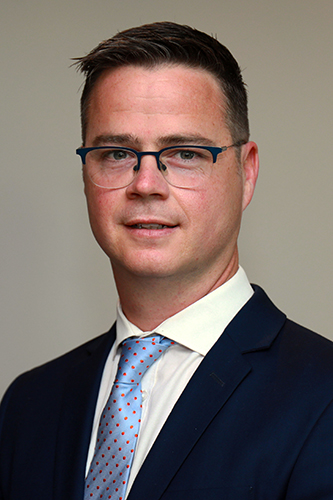
Parliament, Friday, 4 June 2021 – The Portfolio Committee on Public Works successfully concluded the first leg of public hearings on the Expropriation Bill in the Eastern Cape’s Alfred Nzo District where the residents expressed mixed views on the need for the Bill.
The committee kick-started the first leg of public hearings on the Bill in the Eastern Cape yesterday, in the Alfed Nzo District where the residents across the district braved the rainy and cold weather to express their views on the Bill.
The Chairperson of the committee, Ms Nolitha Ntobongwana, said: “We are extremely appreciative that the people of Alfred Nzo District braved the rainy and cold weather to contribute their views on the Bill. We have listened to every opinion expressed, and will take them into consideration upon conclusion of the public consultation process which is one of the most important pillars of a democratic law making process.”
The contributions made ranged from those who supported the Bill completely to those who did not support it based on various reasons. Some of those who supported it highlighted the dire need for land for infrastructure development that is needed for, among other things, the creation of roads, schools, health and agricultural facilities to change the socio-economic conditions of the previously disadvantaged South Africans.
There were participants who called for skills development for the purposes of capacitation especially of the previously disadvantaged people to ensure productive utilisation of land after the implantation of the expropriation of land legislation.
Among the dissenting views, the primary point of contention centred around the dissatisfaction with clause 12(3) of the Bill which provides for instances where
expropriation with nil compensation may be just and equitable. The argument advanced was that property is a generational investment which would be threatened if the Bill is passed.
The rejection by those who rejected the Bill was not outright as they recognised and acknowledged the need for expropriation in the public interest, but with just an equitable compensation.
Regarding the institution of traditional leadership, the committee heard views that the institution welcomed the Bill on grounds that it will facilitate a return of land that was forcefully taken through the notorious and cruel system of colonialism which undermined their role as custodians of land.
Meanwhile, the committee has apologised to traditional leaders and the people from Matatiele communities who complained about the failure of the committee to visit their area. Ms Notobomgwana said: “We have taken due regard that we will not be able to visit every local municipality due to financial constraints as well as impracticability of such an endeavour.”
She added: “In all the provinces we have visited, we have ensured that people are provided transport so as to ensure extensive coverage and meaningful public participation. We have also, in the past, called for written public submissions to ensure that even those who are unable to attend the hearings are afforded an opportunity to express their views on the Bill,”.
The committee will continue with its programme today in Ugie, in the Joe Gqabi District Municipality.
ISSUED BY THE PARLIAMENTARY COMMUNICATION SERVICES ON BEHALF OF THE CHAIRPERSON OF THE PORTFOLIO COMMITTEE ON PUBLIC WORKS AND INFRASTRUCTURE, MS NOLITHA NTOBONGWANA
For media enquiries or interviews with the Chairperson, please contact the committee’s Media Officer:
Name: Malatswa Molepo (Mr)
Parliamentary Communication Services
Tel: 021 403 8438
Cell: 081 512 7920
E-mail: mmolepo@parliament.gov.za

